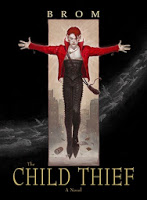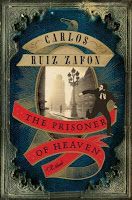I have affiliate relationships with Bookshop.org and Malaprop's Bookstore in beautiful Asheville, NC. I will earn a small commission at no additional cost to you if you purchase merchandise through links on my site. Read more on my affiliate page.
Tom Joad, just released from prison, heads back to his parents’ farm only to find that they have been evicted from their land and are on their way to California in search of a fresh start. Thousands of families are in a similar situation and there are many ruthless people along the way who take advantage of them, mistreat them, and make their lives harder than they have to be.
Is there another version of this book floating around out there somewhere? Because this is not the book I remember reading in high school. Yes, I’m joking. Sort of. I deeply disliked this when I had to read it for class. All I could remember was how depressing it was and the very, very last scene. It made an impression on my 16-year-old self.
Now firmly in my 30s, I don’t know if 16-year-old me was an idiot or if current me is just old and jaded, because I just about loved this. I’d give it 4.5 stars if I could.
It’s still dark and depressing, there’s just no way around that. Everything that can go wrong for the Joads, does. From before they even hit the road, and I’m sure continuing on well after the last page is turned, they just can’t catch a break. It was infuriating, even more so because I knew that this was firmly based on the reality of the Dust Bowl and the Depression.
But this time around, I saw some hope.
The Joads are not beaten. They have taken a beating and they are down, but I don’t think they’re out. They’re still out there struggling along, doing the best they can, for themselves and others. Do you see that? And others. They have practically nothing, but they still give what they have to people who are worse off than they are. They go to some extreme lengths to do it too. As long as the Joads and people like them are still around, I have to have hope for their migrant community. I have an essay about this churning around in my head with quotes to support my point of view and everything, but I’ll try to stay out of that. But that’s where I stand.
The characters definitely had their own distinct personalities, but they weren’t so distinct that I couldn’t relate them to people I know. Ma is fierce in protecting her family and gentle in her kindness. Pa just wants to do some honest work for an honest day’s pay. Tom has grown up fast and is slowly becoming the leader of the family in their changing environment. Al feels overshadowed by his older brother. Rose of Sharon goes through an emotional journey that is impossible to get into, but I think most women would understand where she’s coming from. I think these characters are what made the book a classic. I have never known what it is to be hungry or homeless, but because I know people like the Joads, I can put myself in their place. I don’t know if I would have their grace, but I admire it in them.
Steinbeck chose to write in a dialect that might make it hard for some people to understand the conversations. I took right to it and found myself thinking the way that the Joads talked. Even just looking back through the book right now to decide what I wanted to write, I found myself slipping into it.
I read East of Eden about a year and a half ago and was surprised by how much I liked it. I had a feeling that maybe I had misjudged Steinbeck a little all those years ago. I read the first chapter of The Grapes of Wrath and I was pretty much blown away. This man could write! He opens with a description of the land drying up and dying and the people’s hope drying up with it and that chapter is practically perfect. I felt parched and dry and uneasy. He set the stage for this book that well in just about four pages. He chose to write the story in alternating chapters. One chapter about the Joads and one chapter about life in this era. I liked that he wrote it this way. He didn’t have to make an unrealistic amount of stuff happen to the family to show how bad life was for everyone. He was free to range around different topics. And the beauty of his language showed in the general chapters.
I re-read this for my book club in April, and I believe we all agreed that reading it in early spring was not a good idea. I for one like fluff when the sun starts shining because that’s about all my brain has the capacity for. If you can relate, pick this one up in the wintertime.
But pick it up, even if, like me, you hated it when you were forced to read it in school. You might be surprised by how your perspective has changed.
The Grapes of Wrath is number 3 on the American Library Association’s list of banned and challenged classics. There’s a big list of reasons, but they boil down to language and sex. There’s not really much sex. What is there mostly happened in the past and the character is ashamed of his actions. The language is rough, but these are rough times. That’s how most of us tend to talk when we find ourselves in impossible situations.
Buy The Grapes of Wrath at
I have an affiliate relationship with Malaprop’s, my local independent bookstore located in beautiful downtown Asheville, NC; and Better World Books. I will receive a small commission at no cost to you if you purchase books through links on my site.






2 Comments
I read this as a teenager…and don't have distinct memories about it. But I have it now, on my stacks, waiting for a reread. I'm eager to see if my experience will be like yours. I suspect that it will be. My life experiences since my first read should offer up another perspective of the story (for me). Thanks for your review!
Love this book. I think the end is shocking to some people, and I always wondered if that's why it's banned too.